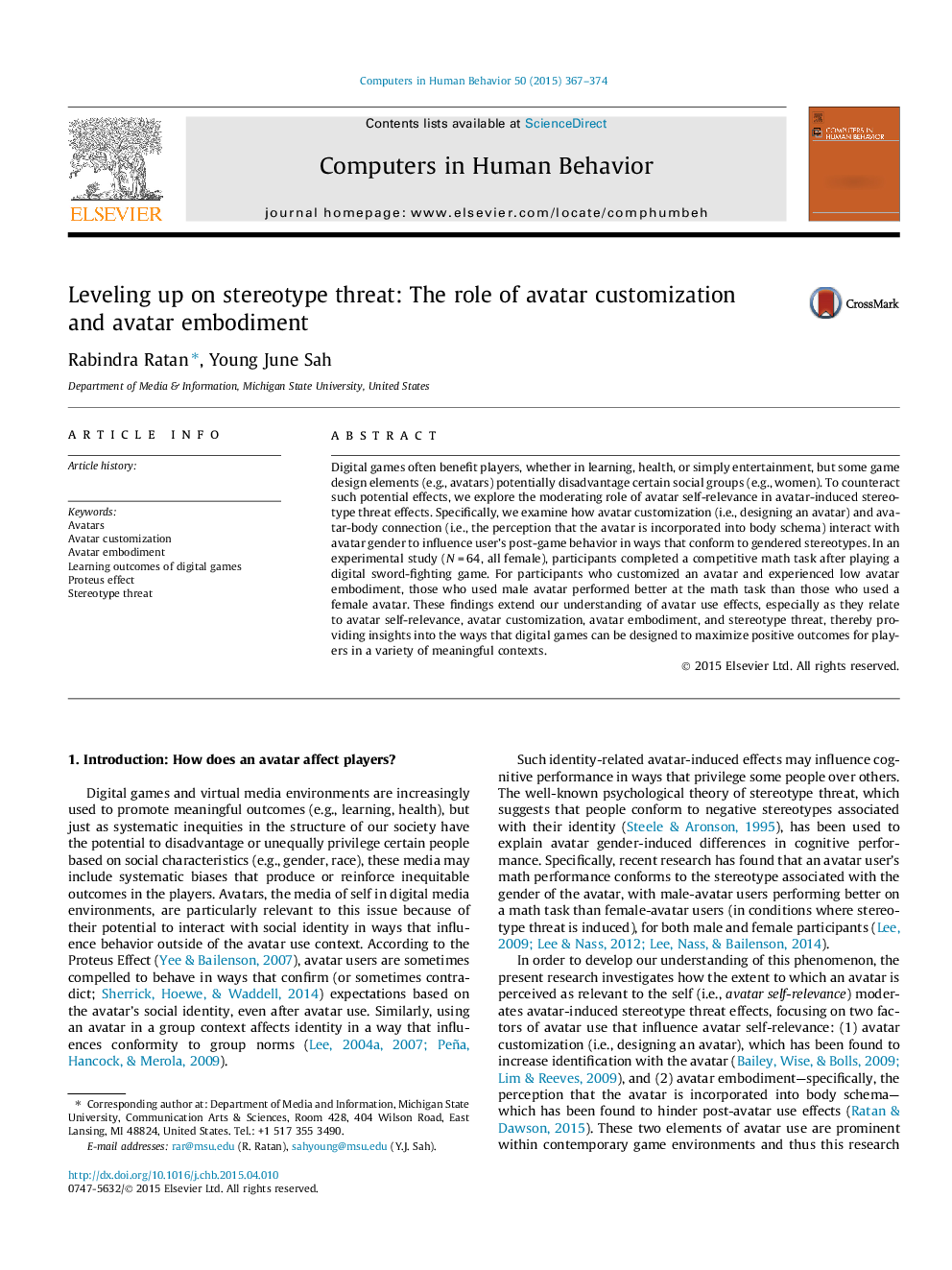| Article ID | Journal | Published Year | Pages | File Type |
|---|---|---|---|---|
| 6838187 | Computers in Human Behavior | 2015 | 8 Pages |
Abstract
Digital games often benefit players, whether in learning, health, or simply entertainment, but some game design elements (e.g., avatars) potentially disadvantage certain social groups (e.g., women). To counteract such potential effects, we explore the moderating role of avatar self-relevance in avatar-induced stereotype threat effects. Specifically, we examine how avatar customization (i.e., designing an avatar) and avatar-body connection (i.e., the perception that the avatar is incorporated into body schema) interact with avatar gender to influence user's post-game behavior in ways that conform to gendered stereotypes. In an experimental study (NÂ =Â 64, all female), participants completed a competitive math task after playing a digital sword-fighting game. For participants who customized an avatar and experienced low avatar embodiment, those who used male avatar performed better at the math task than those who used a female avatar. These findings extend our understanding of avatar use effects, especially as they relate to avatar self-relevance, avatar customization, avatar embodiment, and stereotype threat, thereby providing insights into the ways that digital games can be designed to maximize positive outcomes for players in a variety of meaningful contexts.
Related Topics
Physical Sciences and Engineering
Computer Science
Computer Science Applications
Authors
Rabindra Ratan, Young June Sah,
